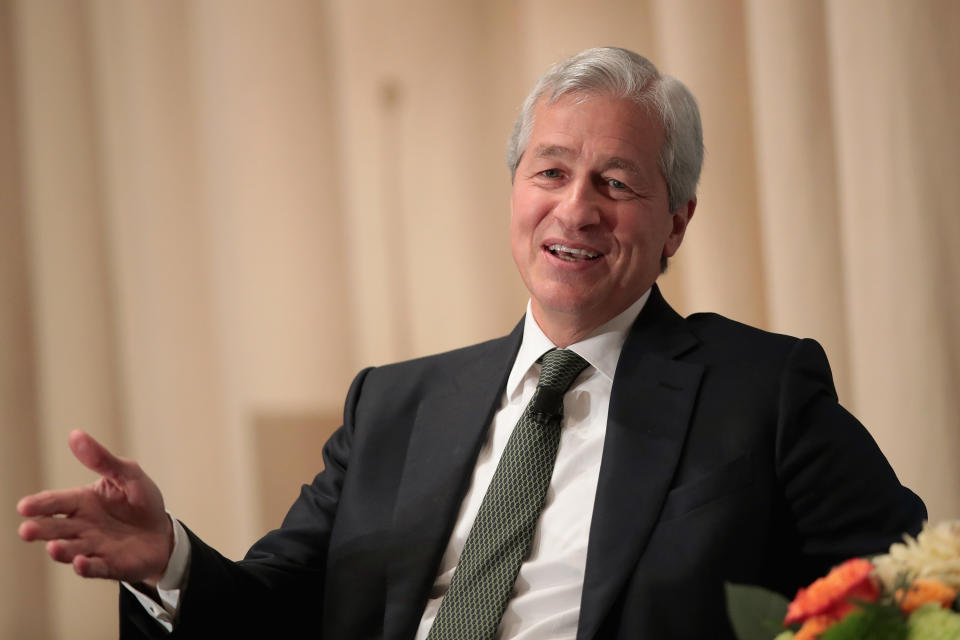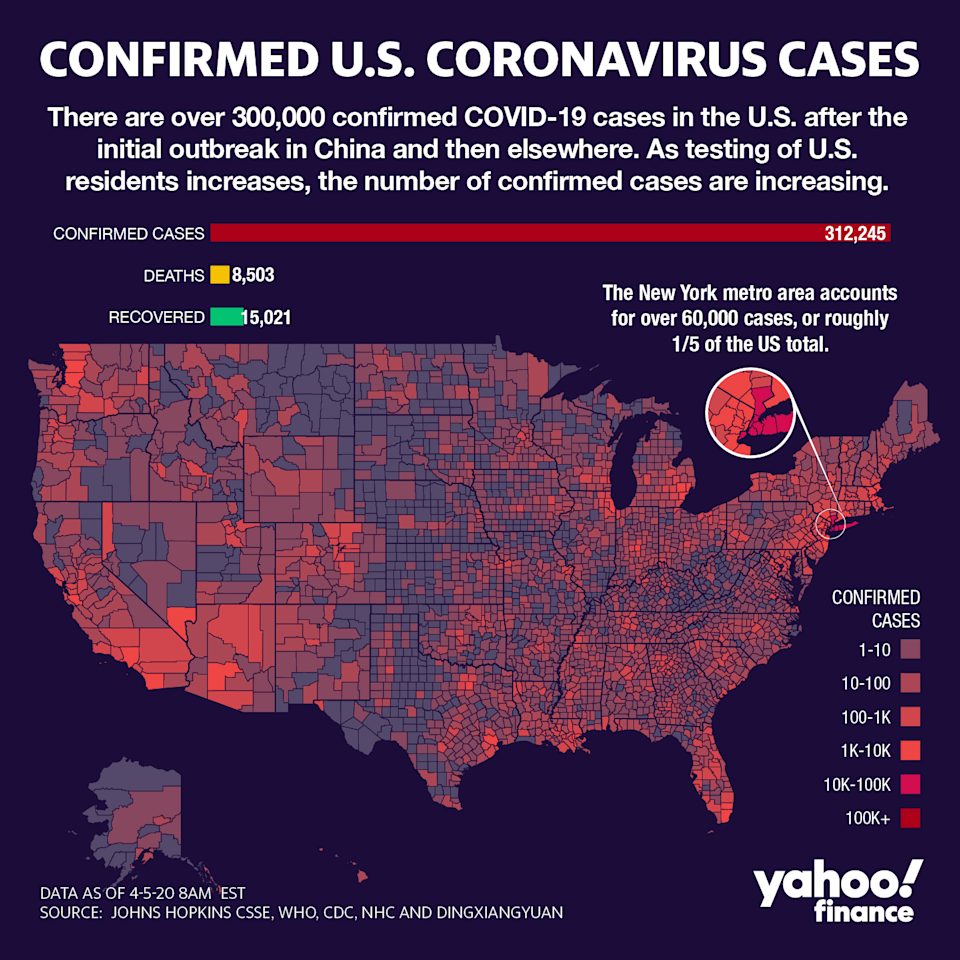JPMorgan can handle GDP falling at a 35% rate: Dimon
Jamie Dimon says that JPMorgan Chase (JPM), the largest U.S. bank by assets, is serious about stress testing itself under some enormous numbers as the COVID-19 crisis continues to damage the economy.
?[We] have run an extremely adverse scenario that assumes an even deeper contraction of gross domestic product, down as much as 35% in the second quarter and lasting through the end of the year, and with U.S. unemployment continuing to increase, peaking at 14% in the fourth quarter. Even under this scenario, the company would still end the year with strong liquidity and a CET1 ratio of approximately 9.5% (common equity Tier 1 capital would still total $170 billion),? Dimon wrote in his widely-read annual letter on Monday.
?This scenario is quite severe and, we hope, unlikely,? he added.
The 64-year-old bank CEO and chairman noted that in this scenario the board would ?likely consider suspending the dividend.?
?If the Board suspended the dividend, it would be out of extreme prudence and based upon continued uncertainty over what the next few years will bring,? he added.
?Our bank cannot be immune to the effects of this kind of stress?
In the letter, Dimon noted that no one knows how long the COVID-19 crisis will last, the extent of the damage on the economy, or the pace of the recovery.
?We have always been serious about stress testing and run an enormous number of tests per week so that we are prepared for most crises. But as is often the case, this ?actual new crisis? ? while it shares attributes with what is being stress tested ? is dramatically different from the expected,? he wrote.
In the meantime, Dimon said the bank has stopped stock buybacks, arguing that it was a ?very prudent action? in this uncertain environment.
?[W]e don?t know exactly what the future will hold ? but at a minimum, we assume that it will include a bad recession combined with some kind of financial stress similar to the global financial crisis of 2008,? he wrote. ?Our bank cannot be immune to the effects of this kind of stress.?
[See Also: JPMorgan?s Dimon: 'There should have been a pandemic playbook']

Dimon also touted JPMorgan?s ?huge and powerful earnings stream? as helping it absorb losses that ?inevitably follow a crisis.? He points out that JPMorgan would be profitable under a scenario where the stock market fell further and unemployment continued to climb.
He wrote: ?For comparison, the Comprehensive Capital Analysis and Review (CCAR) results for 2020 that we submitted to the Federal Reserve in 2019 (which assumed outcomes like U.S. unemployment peaking at 10% and the stock market falling 50%) showed a decline in revenue of almost 20% and credit costs of approximately $20 billion more than what we experienced in 2019. We believe we would perform better than this if the Fed?s scenario were to actually occur. But even in the Fed?s scenario, we would be profitable in every quarter. These stress test results also show that following such a meaningful reduction in our revenue (and assuming we continue to pay dividends), our common equity Tier 1 (CET1) ratio would likely hold at a very strong 10%, and we would have in excess of $500 billion of liquid assets.?
While 2019 was a record year for revenue and net income and many of JPMorgan?s businesses, Dimon notes that investors should expect that earnings will be ?meaningfully down? in 2020.
JPMorgan will report its first-quarter results on April 14.

?
Julia La Roche is a Correspondent at Yahoo Finance. Follow her on Twitter.
Find live stock market quotes and the latest business and finance news
For tutorials and information on investing and trading stocks, check out Cashay
Follow Yahoo Finance on Twitter, Facebook, Instagram, Flipboard, LinkedIn, and reddit.

 Yahoo Finance
Yahoo Finance 
